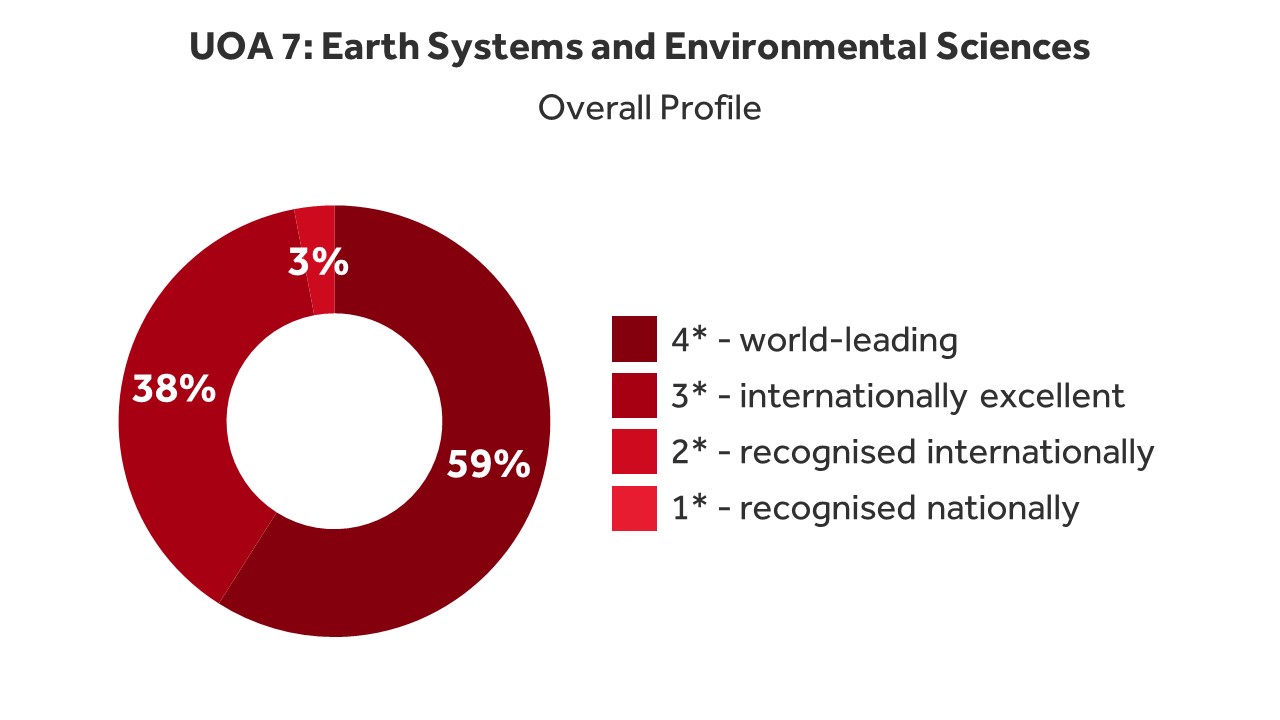Our submission in Earth Systems and Environmental Sciences encompasses research in the Department of Meteorology and the environmental science component of the Department of Geography & Environmental Science. Our research focuses on the natural science of the environment, how it responds to and recovers from anthropogenic and natural perturbations, the science of prediction, and the interplay between our environment, lives and livelihoods.
- Top 10 in UK for Earth Systems and Environmental Sciences.
- Ranked 9th in UK for Grade Point Average (research quality).
- Ranked 3rd in UK for research power.
- 97% of our research is rated world-leading (4*) and internationally excellent (3*).
- 100% of our research impact is rated 4* (outstanding) and 3* (with considerable significance).
- 100% of environment submission rated 4* (conducive to world-leading research and outstanding impact).









